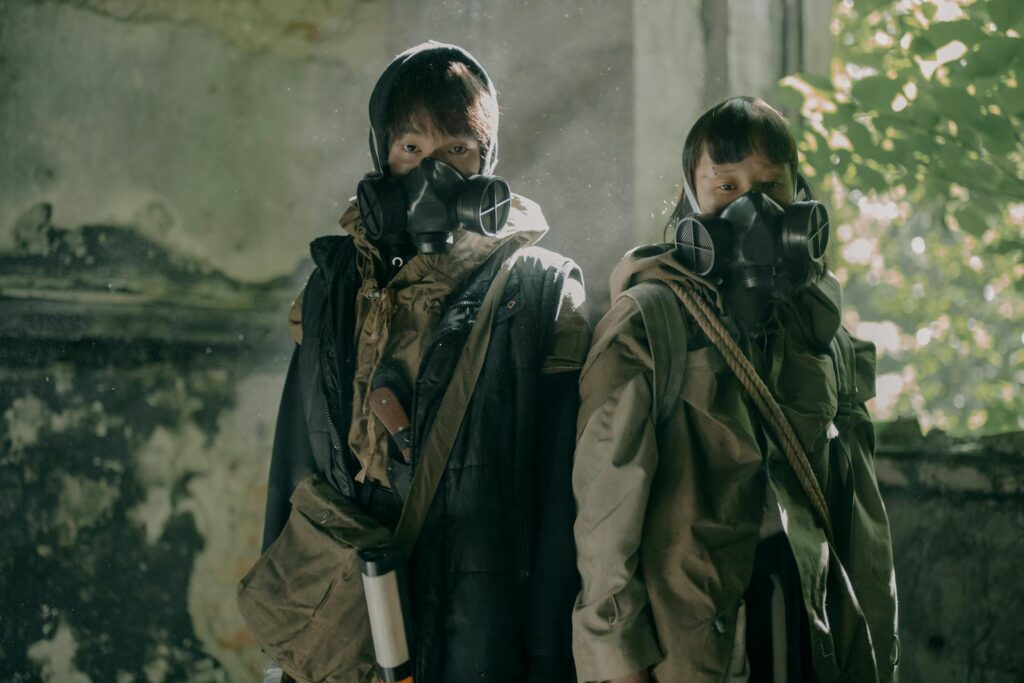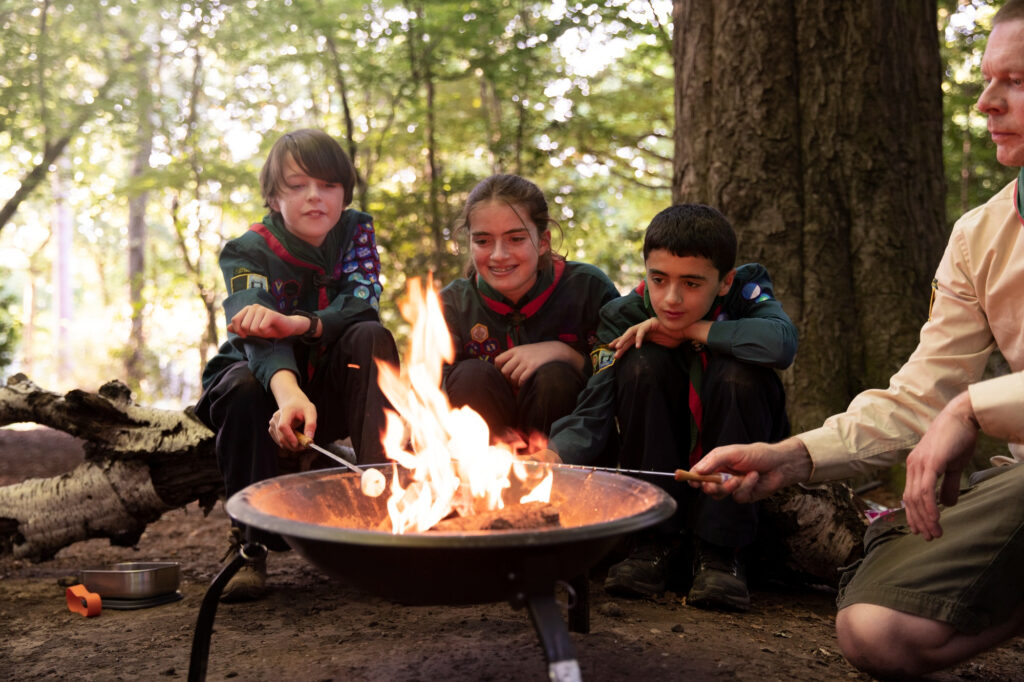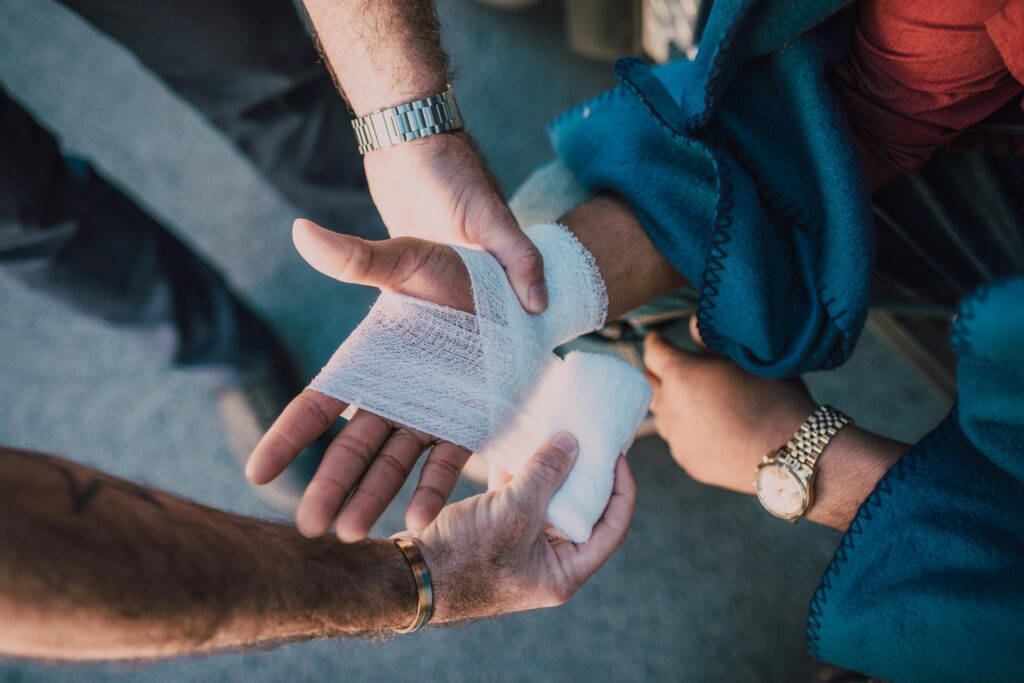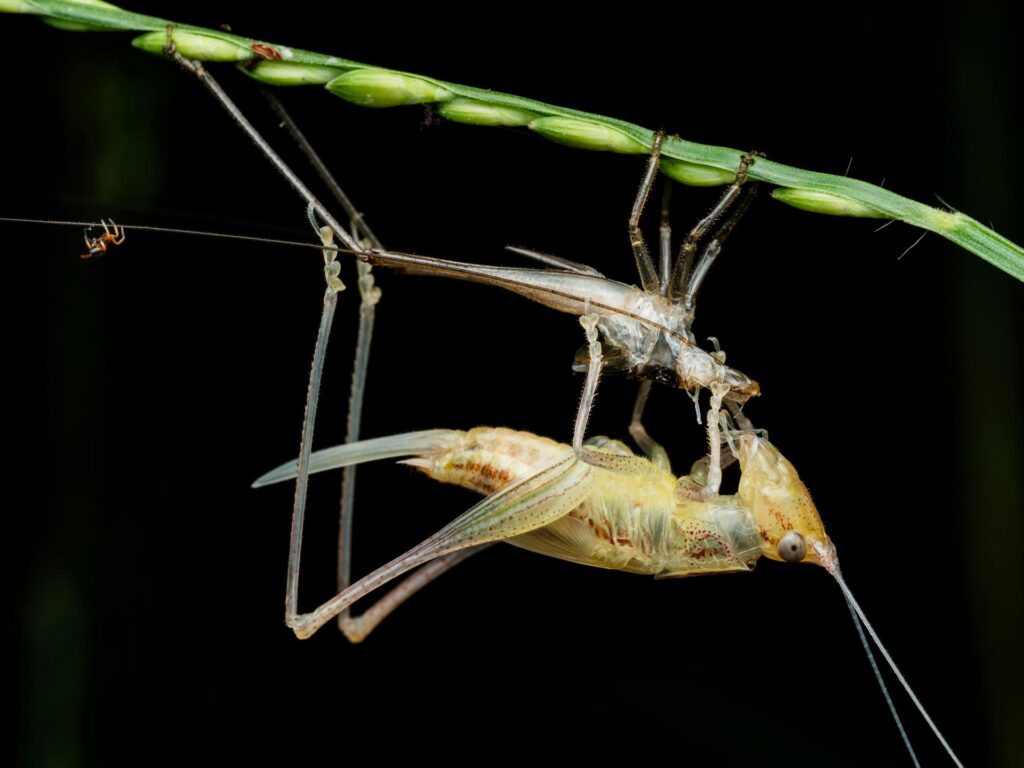
Have you ever watched a survival show and thought, “Wow, I could never do that!” Well, guess what? You probably could do a lot more than you think! Survival skills aren’t just for seasoned outdoorsmen and women. They’re valuable for anyone who might find themselves in an unexpected situation, whether it’s a power outage, a car breakdown in a remote area, or even getting lost on a hike.
Why Is Survival Important?
Survival is important for a few key reasons:
- It’s the foundation for all life: At its most basic level, survival is the instinct to stay alive and reproduce. This drive is what keeps all living things, from the simplest bacteria to complex animals like us, going. Without this survival instinct, life wouldn’t exist.
- It allows us to experience the world: By surviving, we get the chance to experience all that life has to offer – the beauty of nature, the joy of connection with others, the satisfaction of accomplishment.
- It fosters growth and learning: The challenges we face in our pursuit of survival can make us stronger, more resourceful, and more adaptable. We learn from our mistakes and successes, constantly evolving and improving our ability to navigate the world.
- It connects us to something bigger: The act of survival connects us to the basic instincts and primal forces that have shaped life on Earth for millions of years. It reminds us of our place in the natural world and the delicate balance of ecosystems.
Also Read: 7 Effective Strategies For A Digital Detox: A Comprehensive Guide
Here’s a breakdown of these points in a bit more detail:
- The Foundation of Life: Imagine a world where living things didn’t have a survival instinct. They wouldn’t seek food or water, avoid dangers, or take care of their young. Life simply wouldn’t be sustainable. Survival is the core programming that keeps organisms functioning, reproducing, and passing on their genes to future generations.
- Experiencing the World: If we weren’t constantly focused on survival, we wouldn’t have the opportunity to appreciate the beauty around us or build meaningful relationships. Survival allows us to experience the full spectrum of human emotions – love, joy, fear, accomplishment – that make life rich and rewarding.
- Growth and Learning: The challenges we face in trying to survive, whether it’s finding food in the wild or overcoming a personal obstacle, can make us more resourceful and adaptable. We learn from our mistakes and successes, constantly refining our skills and knowledge. This ongoing process of learning and growth is essential for human development.
- Connection to Something Bigger: The act of survival connects us to something larger than ourselves. We become part of the intricate web of life on Earth, where everything is interconnected. It reminds us of our dependence on the natural world and the importance of maintaining a healthy balance within ecosystems.
Survival isn’t just about staying alive in the face of immediate danger. It’s about the ongoing pursuit of well-being, growth, and connection that allows us to experience life to its fullest potential.
10 Best Survival Skills to Make You a Survival Champion
Being prepared and knowing a few basic survival skills can make a world of difference. These skills can help you stay calm, make smart decisions, and even save your life.
So, are you ready to become a survival champion? Let’s dive into the top 10 skills you need to know:
-
Mastering the Art of Fire:
Fire is a friend in the wild. It provides warmth, light, and a way to cook food and purify water. Here’s how to become a fire-starting pro:
- Gather Tinder: Look for dry leaves, twigs, bark, or even grass. Crumpled dryer lint or cotton balls can also work in a pinch.

- Build a Fire Structure: There are many fire-building methods. A simple teepee structure is a good beginner option. Here’s a helpful video guide on how to build a fire: How to Build a Fire – Camping Basics
- Learn How to Use a Flint and Steel: This traditional method takes practice, but it’s a reliable way to start a fire without matches or a lighter.
- Carry a Backup Fire Starter: Pack a lighter or waterproof matches in your emergency kit. These can be lifesavers if you can’t get a fire going with natural materials.
-
Finding Safe Water:
Water is essential for survival. Here’s how to find and purify water in the wild:
- Look for Natural Sources: Springs, streams, and lakes can provide water, but be cautious. Moving water is generally safer than stagnant water.
- Collect Rainwater: If it’s raining, use a tarp, poncho, or even large leaves to collect rainwater.
- Water Purification: Boiling water for at least one minute is the simplest and most effective way to kill harmful bacteria. You can also use purification tablets or a portable water filter. Here’s a guide on different water purification methods: Water Purification Methods for Camping and Hiking
-
Building a Shelter:
Shelter protects you from the elements and helps you retain body heat. Here’s how to create a basic emergency shelter:
- Find Natural Cover: Look for caves, rock overhangs, or fallen trees that can offer some protection.
- Build a Lean-to: Use branches and leaves to create a slanted structure that provides wind and rain protection. Here’s a video showing how to build a simple lean-to shelter: How to Build a Simple Lean-to Shelter
- Use Emergency Blankets: These lightweight, reflective blankets can help retain body heat in an emergency.
-
Signaling for Help:
If you’re lost or injured, attracting attention is crucial. Here’s how to signal for help:
- Build a Large Fire: A large, smoky fire can be a good way to signal for help from afar.
- Use a Mirror: Reflecting sunlight with a mirror can catch the attention of rescuers.

- Blow a Whistle: A loud whistle is a compact and easy way to signal for help.
-
Finding Food:
While foraging for food might seem intimidating, there are many edible plants and animals in the wild. Here are some basic tips:
- Only Eat What You Can Identify: There are many poisonous plants and animals that look similar to edible ones. Unless you’re 100% sure of something, don’t eat it! Here are some resources that can help you identify edible plants: Edible Wild Plants Guide by the National Wildlife Federation and Eat The Weeds – Learn about Edible Wild Plants
- Start with Familiar Foods: Look for common fruits, nuts, and berries that you recognize.
- Focus on Fishing and Trapping: If you have basic fishing or trapping skills, these can provide a sustainable source of food.
-
First Aid Basics:
Knowing basic first aid can help you treat minor injuries and illnesses. Here are some essential skills:
- Stop Bleeding: Apply direct pressure to the wound with a clean cloth. You can use a bandage or even a piece of clothing to create pressure. If the bleeding is severe, elevate the injured limb.
- Clean and Dress Wounds: Clean minor wounds with clean water and irrigation solution (if available). Cover the wound with a sterile dressing to prevent infection.

- Treat Sprains and Strains: Apply ice packs to reduce swelling and pain. Rest the injured area and elevate it if possible.
- CPR and Basic Life Support: While these skills require proper training, learning basic CPR and how to use an Automated External Defibrillator (AED) can be lifesaving in an emergency. Many organizations offer CPR and First Aid courses. Here’s a link to find a CPR class near you offered by the American Red Cross: American Red Cross First Aid/CPR/AED Training [invalid URL removed]
-
Building a Navigation System:
Knowing how to navigate, even without a compass or GPS, can help you find your way back to safety. Here are some basic navigation skills:
- Learn to Use a Map and Compass: A basic understanding of map reading and compass use is essential for any outdoor adventure. Here’s a helpful resource to get you started: How to Use a Map and Compass – REI [invalid URL removed]
- Pay Attention to Your Surroundings: Notice landmarks like mountains, rivers, or even the position of the sun to help you orient yourself.
- Constellation Navigation: Learn to identify basic constellations that can help you determine north at night.
-
Signaling for Help at Night:
If you need to signal for help at night, there are a few additional methods you can use:
- Build a Fire: A large fire will be even more visible at night.
- Use a Headlamp or Flashlight: Signal with a flashlight in three short bursts followed by a long burst, which is the international distress signal.
- Chemical Light Sticks: These can be a great way to signal for help at night, especially if you’re injured and can’t build a fire.
-
Maintaining a Positive Attitude:
Staying calm and positive is crucial in a survival situation. Here are some tips:
- Focus on What You Can Control: Don’t waste energy worrying about things you can’t change. Focus on what you can do to improve your situation.
- Set Small, Achievable Goals: Completing small tasks can give you a sense of accomplishment and boost your morale.
- Focus on the Big Picture: Remind yourself of your reasons for wanting to survive and the people who are waiting for you back home.
Also Read: 6 Effective Strategies of How to Cope with Holiday Stress and Depression
-
Practice Makes Perfect:
Don’t wait for an emergency to learn these skills! Practice basic survival skills at home or on camping trips. This will help you build confidence and become more comfortable in the outdoors.
Here are some additional resources to help you on your survival journey:
- The National Association for Search and Rescue (NASAR): National Association for Search and Rescue
- The American Red Cross: American Red Cross
- The Wilderness Medical Society: Wilderness Medical Society
Remember, survival skills are about more than just starting a fire or finding food. They’re about staying calm, thinking clearly, and making smart decisions in challenging situations. With a little preparation and practice, you can become a master of your environment and increase your chances of staying safe in any situation.
How evolutions helps in survival?
Evolution acts as a giant “survival of the fittest” game that helps living things adapt and thrive in their environments. Here’s a breakdown of how it works:
Imagine a bunch of different animals living in a forest. Some might have thick fur to stay warm in the winter, while others might have sharp claws for climbing trees to escape predators.
- Change is inevitable: Over time, things in the environment can change. Maybe the forest gets colder, or new predators move in.
- Variations happen: All living things have variations, like slight differences in fur thickness or claw sharpness. These variations come from mutations in genes, which are the instructions that tell an organism how to build itself.
- Survival of the Fittest: When the environment changes, the variations that help an animal survive and reproduce become more common. For example, animals with thicker fur might be more likely to survive the cold winter and have more babies. These babies will inherit the genes for thick fur, making it more common in the next generation.
- Gradual Change: Over many generations, these small changes can add up to big differences. The animals in the forest might eventually evolve thicker fur overall, making them better suited to the cold climate.
Real-life examples of how evolution helps with survival:
- Pesticides and insects: Insects can become resistant to pesticides over time. If a pesticide kills most insects, but a few have a variation that makes them resistant, those resistant insects will survive and reproduce. Their offspring will inherit the resistance, making it more common in the population.

- Beaks of finches: Charles Darwin famously studied finches on the Galapagos Islands. He noticed that the finches on different islands had different beak shapes, depending on the food available. Finches with beaks suited for cracking tough seeds thrived on islands with those seeds, while finches with beaks for eating insects thrived on islands with plenty of bugs.
Evolution is a slow process, but it’s incredibly powerful. It allows living things to constantly adapt and improve their chances of survival in a changing world.
Here are some resources to learn more about evolution:
- Khan Academy – Evolution: https://www.khanacademy.org/science/ap-biology/natural-selection/natural-selection-ap/v/introduction-to-evolution-and-natural-selection
- National Geographic – Evolution: https://www.nationalgeographic.org/topics/resource-library-evolution
Final Thoughts: Nature’s Unexpected Challenges and Your Inner Strength
The wilderness may seem daunting, but with a little knowledge and preparation, you can transform yourself from an observer to a master of your environment. The 10 survival skills we explored are just the building blocks. As you practice and expand your knowledge, you’ll gain confidence and self-reliance in any situation.
Remember, survival isn’t just about fire-starting and finding food. It’s about staying calm, resourceful, and adaptable. By honing these skills, you’ll not only be prepared for unexpected challenges in the wild, but you’ll also cultivate a sense of empowerment and inner strength that can benefit you in all aspects of life. So, the next time you step outdoors, take a deep breath, embrace the fresh air, and remember – you have the potential to thrive in any environment.
10 Best Survival Skills to Make You a Master of Your Environment: FAQ
- I don’t live in a wilderness area. Are these survival skills still important?
Absolutely! While the skills we discussed might be crucial in a remote setting, they can be surprisingly helpful in everyday situations as well. Knowing how to build a fire can come in handy during a power outage, and basic first aid skills can be lifesaving in any situation. Additionally, the core principles of survival – staying calm, thinking clearly, and making smart decisions – are applicable to any unexpected challenge you might face.
- What if I can’t start a fire with flint and steel? Are there other ways?
There are definitely alternatives! A lighter or waterproof matches are great backups to have in your emergency kit. You can also try using a magnifying glass to focus sunlight onto dry tinder. This method requires patience and good sunlight conditions, but it can be effective.
- Is rainwater safe to drink?
Rainwater itself is generally pure, but it can become contaminated by pollutants in the air or by running off dirty surfaces. The safest option is to boil rainwater for at least one minute to kill any harmful bacteria. If boiling isn’t possible, you can use purification tablets or a portable water filter.
- What if I get lost and don’t have a compass or GPS?
Don’t panic! There are still ways to navigate. Learning basic map reading skills can be a huge help. Pay attention to your surroundings throughout the day and try to identify landmarks like mountains, rivers, or even the position of the sun at different times. At night, some constellations can help you determine north. Remember, staying calm and focusing on where you came from can be your best bet.
- Are there any edible plants that are easy to identify?
Yes, there are! However, it’s crucial to be 100% certain about a plant before eating it. Many poisonous plants can look similar to edible ones. A good starting point is to focus on familiar fruits, nuts, and berries that you can easily recognize. There are also many resources available online and in libraries that can help you identify edible wild plants in your area. Here are a couple of reputable resources to get you started:
- National Wildlife Federation – Edible Wild Plants Guide: https://nativeplantfinder.nwf.org/
- Eat The Weeds – Learn about Edible Wild Plants: https://practicalselfreliance.com/wild-edible-plants/
- What if I have a serious injury and don’t have any medical supplies?
While these tips are no substitute for proper medical attention, knowing basic first aid can make a big difference. Focus on stopping any bleeding with direct pressure and clean cloths. For sprains and strains, apply ice packs and elevate the injured area if possible. The most important thing is to stay calm and try to signal for help.
- I’m not very good at reading maps. What can I do?
Learning basic map reading skills is a valuable survival tool, but it takes practice. Many online resources and libraries offer tutorials on map reading and compass use. Here’s a helpful guide to get you started: REI – How to Use a Map and Compass: https://www.rei.com/learn/expert-advice/navigation-basics.html
- What should I keep in a basic emergency kit?
A well-stocked emergency kit can be a lifesaver in unexpected situations. Here are some essentials to consider:
- First-aid kit with bandages, antiseptic wipes, pain medication, etc.
- Flashlight or headlamp with extra batteries
- Emergency blanket
- Waterproof matches or lighter
- Fire starter (flint and steel, tinder)
- Signaling mirror or whistle
- Compass and map (local area if possible)
- Basic tools (multi-tool, knife)
- Emergency food and water (consider energy bars and water purification tablets)
- Is there anything I can do to practice my survival skills?
Absolutely! There are many ways to practice your survival skills without putting yourself in danger. Here are a few ideas:
- Go on camping trips and practice building fires, setting up shelters, and using a map and compass.
- Take a first-aid or CPR course.
- Read books and articles about survival skills.
- Attend workshops or classes offered by outdoor organizations.
- What’s the most important survival skill?
While all the skills we’ve discussed are valuable, the most important survival skill might be staying calm and thinking clearly. Panic can cloud your judgment and make it difficult to make good decisions. Focus on the situation, assess your resources, and develop a plan. Remember, the will to survive and the ability to think logically can be your greatest assets in any challenging situation.

